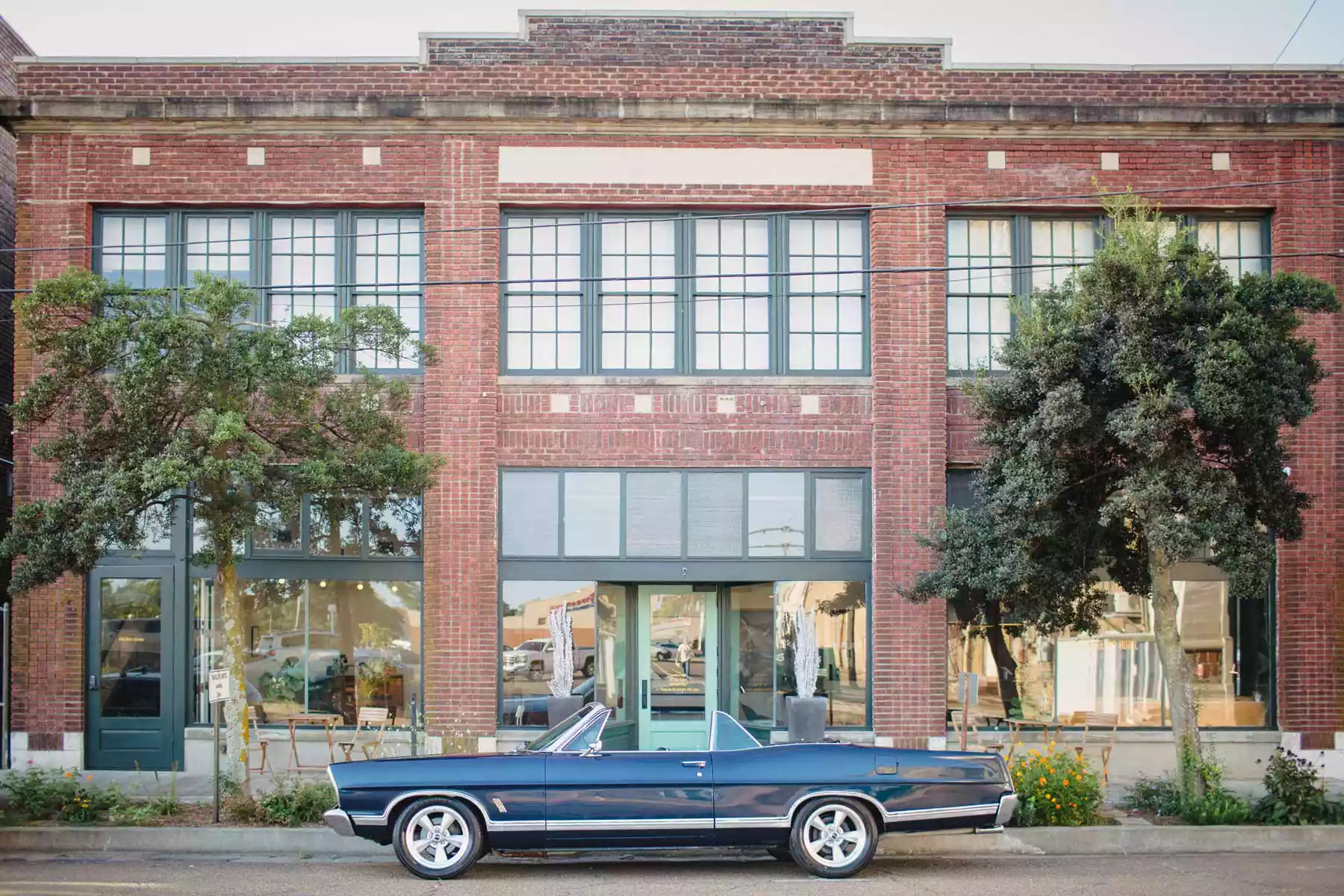Summary
On a pilgrimage to Clarksdale, the cradle of the blues, Benjamin Nugent finds the town’s revival in full swing.
The first time I walked the streets of Clarksdale, Mississippi, I looked at the shotgun shacks and the slow, opaque waters of the Big Sunflower River and felt like a pilgrim in Mecca. If you love the blues and early rock ‘n’ roll the way I do, this is a holy place. It was in Clarksdale, in 1941, that the musicologist Alan Lomax tracked down Muddy Waters and recorded him singing and playing guitar. Several other great bluesmen, including Son House and John Lee Hooker, were born and raised in and around this Cotton Belt city of 15,000. One of the first songs House recorded was his “Clarksdale Moan”:
Every day in the week, I goes to Midtown Drugs And get me a bottle of snuff, and a bottle of Alcorub.
According to legend, it was in Clarksdale that Robert Johnson made a deal with the devil at the crossroads of Highways 49 and 61, trading his soul for mastery of the guitar. If you were pressed to identify a single building as the birthplace of rock music, you could do worse than Clarksdale’s Riverside Hotel (riversideclarksdale.com), currently closed and in need of donations for repairs. By some accounts, it was in its basement, in 1950, that Ike Turner and Jackie Brenston wrote and rehearsed “Rocket 88,” generally considered the first rock ‘n’ roll song. The hotel once served as the G. T. Thomas Afro-American Hospital, where Bessie Smith died in 1937.

These are the reasons that travelers from all over the world have stopped in Clarksdale for decades, particularly on road trips between Memphis and New Orleans. However, Clarksdale is no longer merely a place to look around, breathe the sultry air the geniuses breathed, and drive on. In recent years, some scrappy entrepreneurs have helped transform it into a great place to stay for a few nights.
One significant development has been the opening of the Travelers Hotel (stayattravelers.com; doubles from $135), which occupies the shell of a 1920s flophouse that housed railroad workers. The story of the new Travelers began in 2014 when Chuck Rutledge, a renovator of historic properties and Clarksdale native, was inspired by a piece he read in the New York Times about a boutique hotel in Brooklyn. This led Rutledge and his partner, Ann Williams, to recruit architect Jonathan Tate, secure grant money, and strip the rooms down to their essentials: bare concrete, wired-glass windows, and high ceilings. They hired a couple of young local artisans willing to work 25 hours a week in exchange for housing.
They opened in 2019 and quickly attracted clientele from as far away as Sweden and Australia. The beauty of the Travelers’ rooms lies in their austere charm. Each room features handmade furniture, and many have elegant desks made of plain wood; importantly, none have televisions. This arrangement promotes an environment more conducive to reading or writing instead of indulging in room service, which is unavailable. Moreover, if you want to hear live music, you need only pull on some slippers and head down to the big lobby, which doubles as a free concert venue. During my visit, I encountered a diverse, multigenerational crowd coming together to enjoy good music and conversation.
While sitting at the bar listening to a mellow blues-inflected soul concert, I spoke with Williams about the Collective Seed & Supply Co. (coahomacollective.org), the business she started with Rutledge in 2018. This general store, which sells books, tchotchkes, produce, and garden supplies, is operated by artists who work part-time in exchange for accommodations above the shop. Williams shared, “We get fancy Delta ladies coming in with their yard men, and then a little old lady requesting how many mustard-green seeds she can get for thirty-seven cents.” During my visit, I discovered they offered both antibiotics for dogs and Lauren Oyler’s millennial coming-of-age novel, “Fake Accounts.”

Clarksdale is a gathering place where people from diverse backgrounds join forces, according to Johnny Cass, an Australian guitarist who also works as a chef at Hooker Grocer & Eatery (hookergrocer.com; entrées $14–$36). Cass first arrived in Clarksdale from Sydney due to his obsession with the blues, where he learned to make soul food from a local bluesman. “Me and Muleman were sitting around one night after we played a gig,” Cass recalled, referring to Clarksdale musician Mark “Muleman” Massey, “and I asked, ‘Who’s going to show me how to make a biscuit?’ He said, ‘Come on, Johnny, I’ll show you how to make a biscuit.’
For Rutledge, Clarksdale’s newfound cultural mix signifies a positive change. “When I was growing up here,” he stated, “it was an idyllic Southern town, brimming with mom-and-pop shops, but it was segregated. Now the mom-and-pops are gone, the manufacturing is gone, but it’s integrated.”

While Clarksdale is undergoing transformation, it still preserves its rich musical and historical attractions. Abe’s (abesbbq.com; entrées $7–$20) is one of the most celebrated barbecue joints in Mississippi. The Delta Blues Museum (deltabluesmuseum.org) is home to what remains of Muddy Waters’s cabin from his sharecropping days. Furthermore, Clarksdale’s venues—Ground Zero Blues Club (groundzerobluesclub.com), Red’s Lounge (395 Sunflower Ave.; 662-627-3166), and Bad Apple (fb.com/badapplebluesclub)—remain some of the best locations globally to experience live blues.
Ultimately, the most compelling reason to visit Clarksdale, according to Cass, is its Deep South hospitality. “You show up at a bar or restaurant here by yourself,” he said, “and before you know it, it’s two in the morning, and you’re at a juke joint with people you just met. In a large city, it might take a week to discover the local culture; in Clarksdale, you can stumble upon it almost instantly.”





